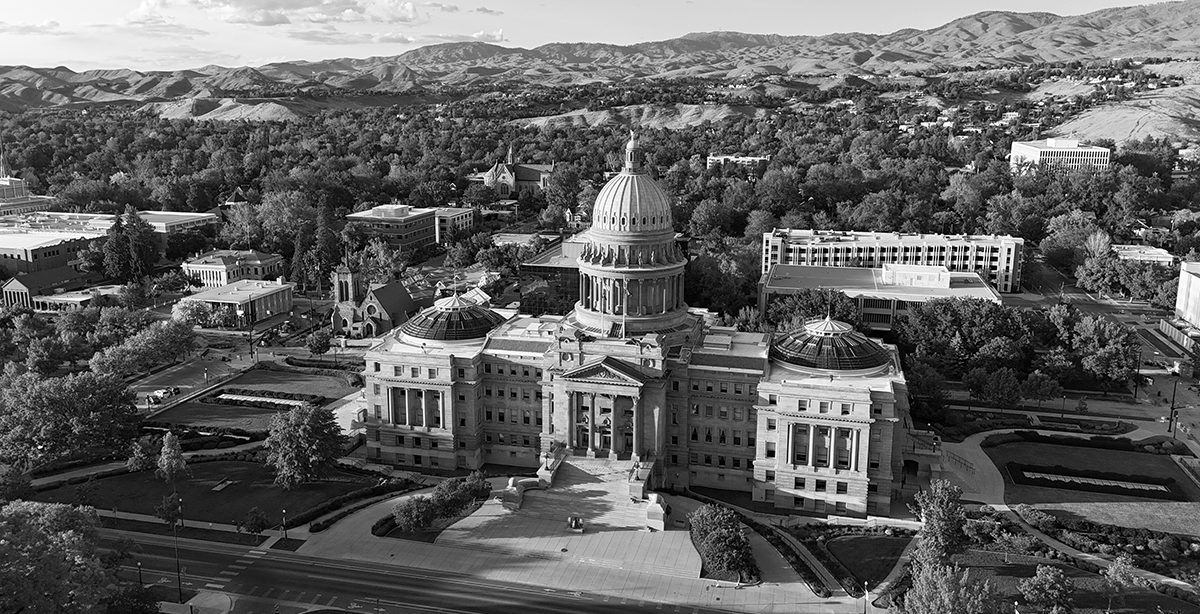On April 4, the Idaho legislature adjourned Sine Die after 89 days in session. During this session a total of 789 pieces of legislation were introduced with 322 of those bills becoming law.
Below are a few stand out bills from this session.
Education
Following the national trend, SB 1198 restricts DEI within higher education in the state. This bill prohibits higher education institutions that receive state funding from supporting DEI programs in schools or requiring DEI related courses as part an academic degree requirement. It also bars preferential treatment based on race, sex, color, ethnicity, or national origin in admissions and hiring while allowing the institutions to reallocate DEI-related funds to merit scholarships for in-state students. HB 93 is referred to as Idaho's first "school choice" bill. The measure provides non-public students with up to $5000 in tax credits (up to $7500 for special needs) for costs associated with private schools or home schooling.
Only one bill, SB 1023, was vetoed by Governor Brad Little (R) which prohibits schools from mandating a medical intervention, which is a pharmaceutical or biological agent that alters the bodies biological functioning, for an individual to attend school, enter the campus or being employed there. Governor Brad Little expressed his support for medical freedom in his veto message, however he stated that this bill could jeopardize child safety by restricting schools from being able to send home sick children. The veto override for this bill failed in the Senate, which received less than 2/3 of the need votes to override the veto.
Medicaid
While Medicaid expansion was not overturned in the state during the legislative session, HB 345 was passed placing restrictions on the Medicaid program. This measure requires the Department of Health and Welfare to seek a state plan amendment for a work requirement/ reporting requirement for those in Medicaid expansion. The measure further limits Medicaid income eligibility to 100% of the federal poverty limit and has moved Medicaid from being managed through value care organizations to a Health Connection primary care case management program.
HB 135 also restricts Medicaid access for undocumented individual, by requiring state agencies to verify an individual’s immigration status to receiving public assistance, including Medicaid coverage and food benefits. This verification requirement will apply to vaccines, prenatal and post-natal care, and food aid for children. Emergency care is excluded from this verification requirement.
Budget
Tax relief was a major topic from the 2025 session with HB 304 providing an estimated average property tax cut of 14% while also proving $50 million to school districts and another $50 million to reduce property tax within counties. HB 40 delivered huge tax cuts for Idahoans by reducing the state’s income tax to 5.3% from 5.695% which exempting miliary pensions from this income tax. As a conservative state, many Idaho lawmakers and the Governor expressed their support for tax relief, while Democrat leads have expressed concern over this lack of revenue while there is economic uncertainty across the country.
The 2025 legislative session was extended by 2 weeks for the legislature to finish their budget. Some key budget takeaways include:
- $25,100,000 was allocated to the Department of Transportation for capital facilities.
- $150,579,700 was allocated to the Department of Commerce for the Broadband Office, including $150,332,200 for broadband grants, which will be allocated at the direction of the Idaho Broadband Advisory Board.
- $68,208,800 was allocated to the Permanent Building Fund to undertake construction, renovation, repair, and acquisitions.
- $4,506,000 was provided for prevention and cessation programs for tobacco, vape, and other substances as funds allow.
- $75,000,000 was provided to fully fund, LAUNCH, which is a program that provides up to $8,000 to graduating seniors to go to trade school or college for an “in demand” careers.
Looking Ahead
Governor Little has expressed his happiness with the 2025 session as the Legislature approved 95% of the Governor's plans for education, tax relief, and infrastructure improvements.
“I am especially proud of the record tax relief, support for law enforcement, ongoing money for water infrastructure, additional support for rural school facilities and literacy, full funding for LAUNCH, and the billions in additional capacity for roads. The list of successes is long, and there is still more we can and should do for Idahoans,” Governor Brad Little (R)
Idaho currently has no rumored special session for 2025 and no major elections scheduled until 2026.
